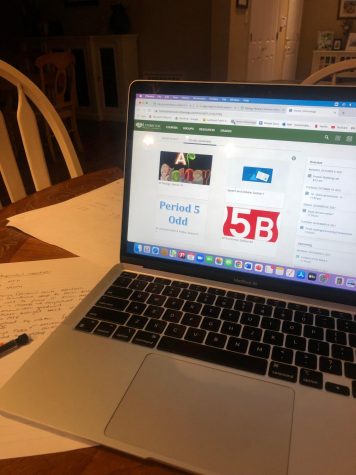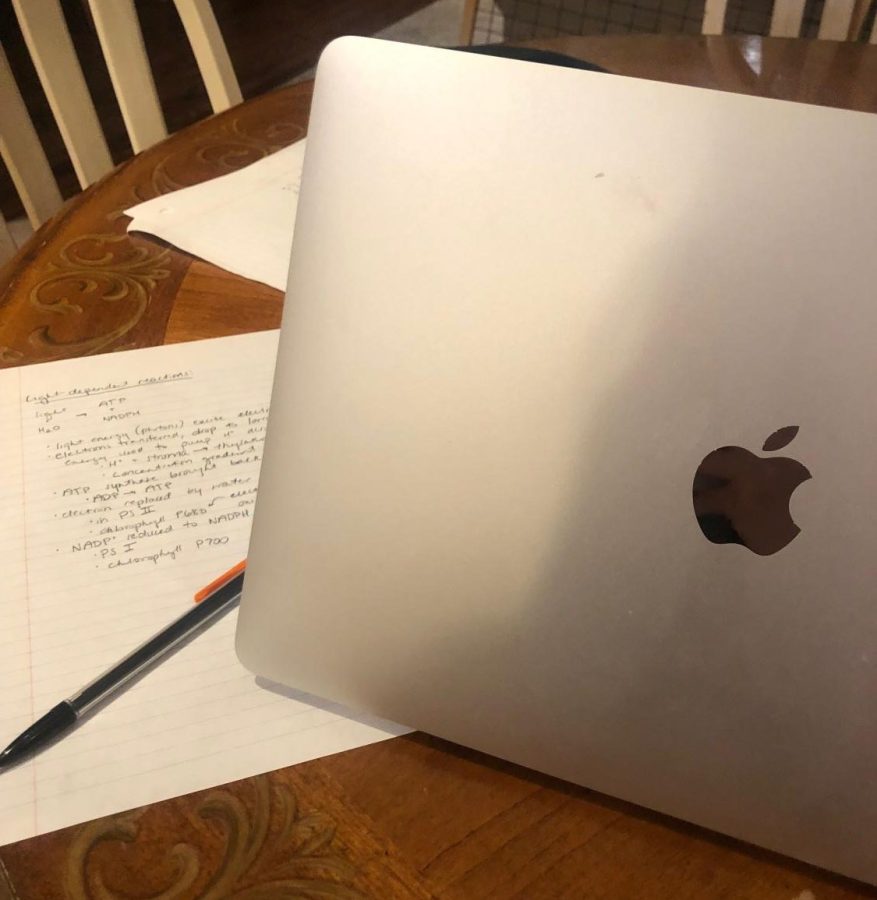Cheating, Cybersecurity, and Computer Crashes
The past decade has seen a drastic rise in the use of technology within school systems, and the Lynbrook School District is no exception. Tablets were first administered to all LHS students in the 2018-19 school year, and their use has only increased in the time since, now extending to grades as young as kindergarten. Though there are many benefits to this new learning format, many call into question the quality of security on these devices, from both a hacking and cheating standpoint.
Remote learning, which was instituted during the pandemic in order to reduce the spread of COVID-19, took place for nearly a year and a half, from March of 2020 to June of 2021. During this 18-month period, students became accustomed to completing every assignment, quiz, and test online, habits that today seem difficult to break. Though students are meant to use only school-issued Microsoft tablets within the school building, many have continued using their personal devices, such as iPads and Macbooks.
The issue became evident this year when the entire student body returned to in-person learning, Principle Joseph Rainis said. Guidance counselor Sue Moller agreed that she has seen a “dramatic increase in the number of students using non-school issued tablets and connecting to hotspots,” a less secure internet connection in comparison to Wi-Fi.
Senior Olivia Ackerman began using her iPad as her primary device for schoolwork at the beginning of the pandemic. She feels that her Apple device is “more accessible and faster” than the school-issued Dell tablet; additionally, she said it is less prone to crash and delete her work, which is a technological glitch that some students have experienced on their school-issued tablets.
“I see no reason that we shouldn’t be allowed to use our personal devices in school,” Ackerman said. “They are no different than a school-tablet, and they are so much easier and more reliable.”
In several of his most recent weekly

bulletins, Rainis has urged students to abide by school rules and leave their personal devices at home. “Students found using their own device risk having the device confiscated, and a parent or guardian will need to come to school to pick it up at the end of the day,” one bulletin warns.
Yet, Rainis’ plea has yet to be answered. With students still using non-school issued tablets, LHS’s cyber safety is at higher risk than ever, and cheating is increasingly difficult to regulate. The safety issue stems from the use of building Wi-Fi; when unprotected devices connect to the server, there is no safeguard against hackers if they try to break into the system, leaving student and staff records vulnerable to a leak.
An extreme case of this issue occurred two years ago before the lockdown of schools due to COVID-19. An Emotet virus nearly destroyed “the backbone” of the LHS technological system, including business, municipal, and institutional information, explained Rainis. The issue was resolved, but only after the district expended a great deal of resources and doubled down on security measures to avoid a recurrence. However, administrators worry that non-school issued devices could open doors for another breach of security.
“If colleges, employees, and the U.S. military rely on the veracity of the information we’re giving them, then we better be giving them good information,” Rainis said. “The data we have on this district’s families is something that we have a responsibility to protect.”
Another concern with the increased use of non-school issued tablets is the ability to cheat on assignments and exams. School tablets have safeguards against cheating, such as blocking certain websites known for “plagiarism” or “forums.” Additionally, administrators have access to students’ search history, so if cheating is suspected, it can be confirmed rather than just speculated.
Rainis commented that the rise of remote learning made it difficult to “accurately and adequately assess student learning” and to “judge whether the work [teachers] receive is reliable.” There was significant worry about the potential for widespread cheating and sharing work, which raised many questions about whether virtual learning can be executed while maintaining the authenticity of students’ work. Rainis has urged the LHS staff at each faculty meeting this year — in September, October, and November — to avoid online exams whenever possible, and to administer tests that factor into students’ grades on paper.
“Over the past year and a half, we’ve experienced both the benefits and drawbacks of online learning,” Rainis said. “Now that we’re back together, we need to figure out how we want to employ the best of both.”

I am the editor-in-chief of the Horizon newspaper and a member of the Class of 2022. I am also the captain of the LHS Speech, Debate, and Model Congress...

















